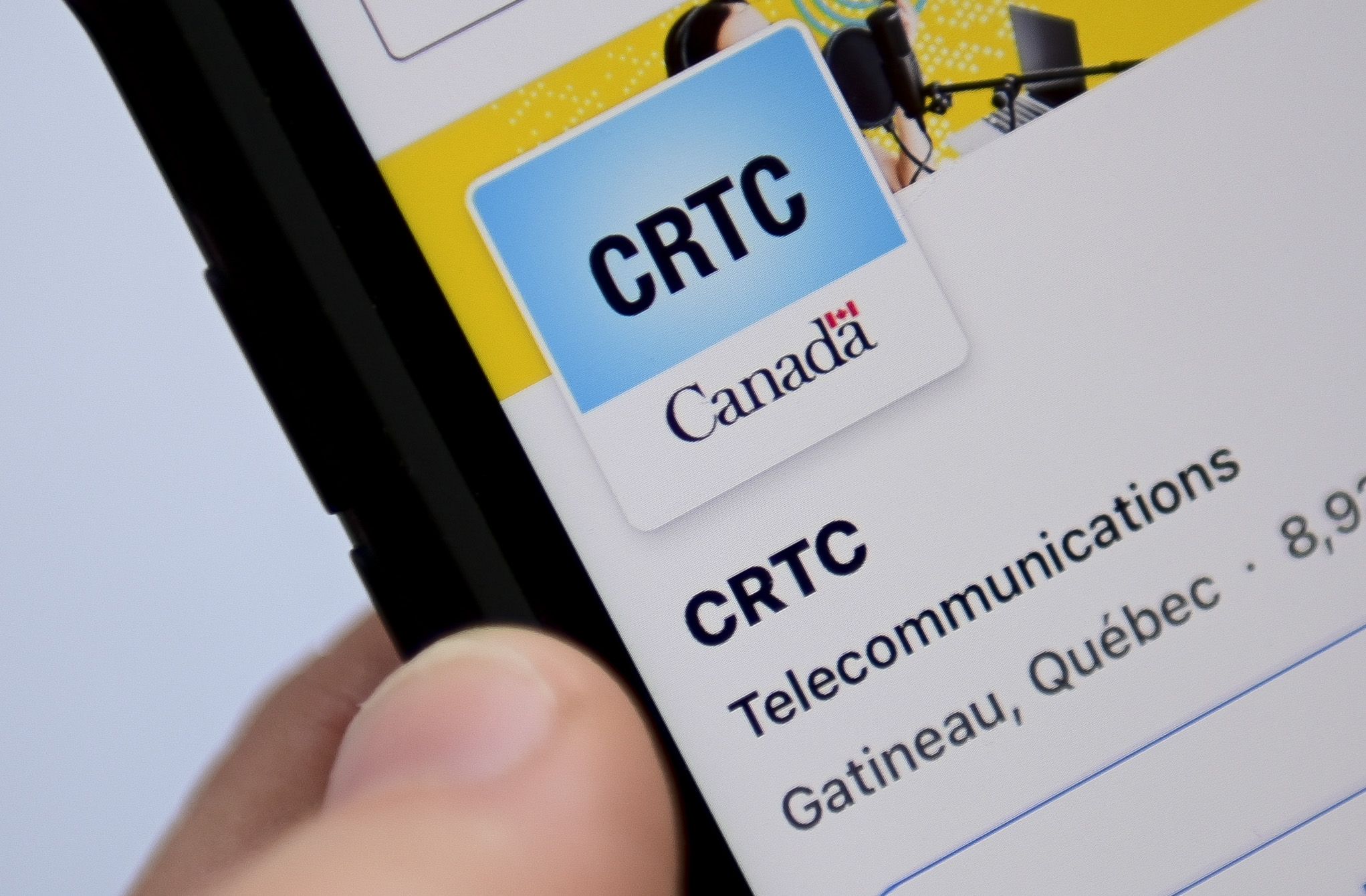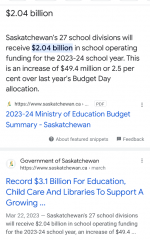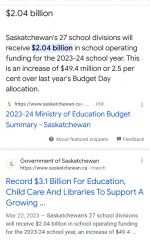Skip is a beautiful thing. AM & CB….& short wave when I was younger.Funny thing. At night it's easy to pick up CBC SK 540AM in Texas.
Bill’s C-10 & C-11. If we aren’t talking about it already, shouldn’t we be?
- Thread starter Ron in Regina
- Start date
You are using an out of date browser. It may not display this or other websites correctly.
You should upgrade or use an alternative browser.
You should upgrade or use an alternative browser.
Lots of Jesus stations and Jimmy Dean sausage commercials.Skip is a beautiful thing. AM & CB….& short wave when I was younger.
It's magic!Skip is a beautiful thing. AM & CB….& short wave when I was younger.
Just like when automatic rifles were made restricted, and required a permit. Then made illegal once the government knew who owned most of them. I expect regulations to limit what we can say about our government. Regulations are imposed by unelected bureaucraps with an agenda, not politicians.As debate on Bill C-11 in the Senate entered its final hours Wednesday evening, senators chose not to push back against the Liberal government’s rejection of a previous Senate amendment to explicitly exempt user content from the bill.
The Liberal government has said it doesn’t intend for user content — such as videos posted on YouTube by digital creators and everyday Canadians — to be captured by the online streaming law, but has rejected the Senate amendment that would have enshrined that exemption in the bill itself.
On Wednesday, Senators voted 47-17 against an amendment that would have seen the Senate “insist” on the exemption and other changes the Red Chamber previously made to the legislation.
Sen. Don Plett, leader of the opposition in the Senate, said all the user content amendment would have done is kept the government at their word. Oh well…
“All that the Senate did was to take the government up on its claim and to test its commitment. But when put to the test, the government failed. It effectively declared that it would continue to reserve the right to permit the CRTC to regulate user-generated content if required,” he said.

Senators won’t ‘insist’ on user content exemption in online streaming bill — National Post
The Liberal government has said it doesn’t intend for user content to be captured by the Bill C-11apple.news
Whether we want it or not.Sounds like straightforward protect-local-culture stuff.
That's why you have elections.Whether we want it or not.
Doesn't help when the Toronto area has more MPs than several entire provinces combined.That's why you have elections.
Sucks to be you.Doesn't help when the Toronto area has more MPs than several entire provinces combined.
sometimes. I really dislike being dicktated to by someone in a different timezone.Sucks to be you.
C-11 is now law and the internet is under government control
The law gives the government the power to control what we watch, read and listen to online
Author of the article:Brian Lilley
Published Apr 28, 2023 • Last updated 21 hours ago • 3 minute read
With the passage of Bill C-11 on Thursday, the future of the internet in Canada is up in the air.
That’s not an outrageous statement for anyone who has bothered to read the bill we’ve just passed into a law — a bill that gives incredible control over internet content to the government.
What’s worse, much of that control will come through yet-to-be-developed regulatory measures designed by the Canadian Radio-television and Telecommunications Commission, the broadcast regulator commonly called the CRTC.
Much has been made of the law’s ability to regulate user-generated content on social media sites — many have called the bill a censorship law, and there is plenty to worry about there. Neither of those concerns, though, deal with the far-reaching ability of the federal government to control everything you see, read, watch or listen to online.
In the future, you may be listening to an audiobook and find that you need to consume some Canadian content before moving onto the next book. You could be listening to your music playlist, the one you curated, and start hearing a Canadian artist you didn’t select coming through the speakers.
This is the kind of control the government has now granted itself.
It’s right in the legislation where the stated goal of the bill is laid out: “Add online undertakings — undertakings for the transmission or retransmission of programs over the Internet — as a distinct class of broadcasting undertakings.” As of now, all online audio or video services deemed significant enough by the government will fall under the auspices of the CRTC, which is given power by this act to determine “the proportion of programs to be broadcast that shall be Canadian programs.”
Given that radio stations are required to ensure that 35% of the popular music they play is Canadian content, how far-fetched is it that this will be the case for Canadian consumers of Spotify, Apple Music or Amazon? What about a CRTC decree that Netflix or Paramount Plus must stream a certain amount of Canadian content to be allowed to operate here in Canada?
None of this is far-fetched, it’s the kind of regulations that exist for traditional broadcasters and now the regulator for those broadcasters, the CRTC, will be in charge of the online world. Industry insiders believe this is an unlikely scenario but the law would allow it and lobbyists for certain parts of the cultural sector may demand it.
Especially once the online platforms are forced to turn over sensitive data on subscribers and revenue to the CRTC.
So yes, C-11 has given the government the ability to regulate user content on social media, it has given itself the ability to censor content that it doesn’t like, but, more importantly, it has given itself the ability to control every aspect of your online experience. We are potentially moving from the open and rambunctious world wide web to a controlled online experience where we can access what the government allows us to access.
While I don’t expect the federal government or CRTC to block access to services, I do expect that the regulations will lead to some services not being offered or launched in Canada. We should also expect that some companies may leave or cut Canadian staff as the cost to comply with the new regulations rises.
We have entered the great unknown for the future of the online world in Canada. All the major platforms that we use each and every day are now regulated by the CRTC.
How that will play out and how that will impact the way we consume content online will now be determined by unelected, unaccountable to the public, bureaucrats in Ottawa. We have to hope they get it right, but history tells us they won’t.
blilley@postmedia.com

 torontosun.com
torontosun.com
The law gives the government the power to control what we watch, read and listen to online
Author of the article:Brian Lilley
Published Apr 28, 2023 • Last updated 21 hours ago • 3 minute read
With the passage of Bill C-11 on Thursday, the future of the internet in Canada is up in the air.
That’s not an outrageous statement for anyone who has bothered to read the bill we’ve just passed into a law — a bill that gives incredible control over internet content to the government.
What’s worse, much of that control will come through yet-to-be-developed regulatory measures designed by the Canadian Radio-television and Telecommunications Commission, the broadcast regulator commonly called the CRTC.
Much has been made of the law’s ability to regulate user-generated content on social media sites — many have called the bill a censorship law, and there is plenty to worry about there. Neither of those concerns, though, deal with the far-reaching ability of the federal government to control everything you see, read, watch or listen to online.
In the future, you may be listening to an audiobook and find that you need to consume some Canadian content before moving onto the next book. You could be listening to your music playlist, the one you curated, and start hearing a Canadian artist you didn’t select coming through the speakers.
This is the kind of control the government has now granted itself.
It’s right in the legislation where the stated goal of the bill is laid out: “Add online undertakings — undertakings for the transmission or retransmission of programs over the Internet — as a distinct class of broadcasting undertakings.” As of now, all online audio or video services deemed significant enough by the government will fall under the auspices of the CRTC, which is given power by this act to determine “the proportion of programs to be broadcast that shall be Canadian programs.”
Given that radio stations are required to ensure that 35% of the popular music they play is Canadian content, how far-fetched is it that this will be the case for Canadian consumers of Spotify, Apple Music or Amazon? What about a CRTC decree that Netflix or Paramount Plus must stream a certain amount of Canadian content to be allowed to operate here in Canada?
None of this is far-fetched, it’s the kind of regulations that exist for traditional broadcasters and now the regulator for those broadcasters, the CRTC, will be in charge of the online world. Industry insiders believe this is an unlikely scenario but the law would allow it and lobbyists for certain parts of the cultural sector may demand it.
Especially once the online platforms are forced to turn over sensitive data on subscribers and revenue to the CRTC.
So yes, C-11 has given the government the ability to regulate user content on social media, it has given itself the ability to censor content that it doesn’t like, but, more importantly, it has given itself the ability to control every aspect of your online experience. We are potentially moving from the open and rambunctious world wide web to a controlled online experience where we can access what the government allows us to access.
While I don’t expect the federal government or CRTC to block access to services, I do expect that the regulations will lead to some services not being offered or launched in Canada. We should also expect that some companies may leave or cut Canadian staff as the cost to comply with the new regulations rises.
We have entered the great unknown for the future of the online world in Canada. All the major platforms that we use each and every day are now regulated by the CRTC.
How that will play out and how that will impact the way we consume content online will now be determined by unelected, unaccountable to the public, bureaucrats in Ottawa. We have to hope they get it right, but history tells us they won’t.
blilley@postmedia.com
Government Bill (House of Commons) C-11 (44-1) - Third Reading - Online Streaming Act - Parliament of Canada
Government Bill (House of Commons) C-11 (44-1) - Third Reading - Online Streaming Act - Parliament of Canada
parl.ca

LILLEY: C-11 is now law and the internet is under government control
Few Canadians realize how far reaching Bill C-11 is. The government has given itself the power to regulate what we watch, read or listen to.
Anyway, for clarity on this Bill C-11 now:
Now this Thread is almost a year old itself, & the below video is 10 month old:
We'll regret this happened as we'll be more in the dark than ever before and we already have an issue with apathy in this country. Will this Forum be able to continue with some of us on here objecting to what our current government is doing? Will we risk getting "cancelled" and will the Forum be able to continue? Will we be able to comment on various issues & policies of the day if we don't agree? It's going to get interesting, that's for sure.C-11 is now law and the internet is under government control
The law gives the government the power to control what we watch, read and listen to online
Author of the article:Brian Lilley
Published Apr 28, 2023 • Last updated 21 hours ago • 3 minute read
With the passage of Bill C-11 on Thursday, the future of the internet in Canada is up in the air.
That’s not an outrageous statement for anyone who has bothered to read the bill we’ve just passed into a law — a bill that gives incredible control over internet content to the government.
What’s worse, much of that control will come through yet-to-be-developed regulatory measures designed by the Canadian Radio-television and Telecommunications Commission, the broadcast regulator commonly called the CRTC.
Much has been made of the law’s ability to regulate user-generated content on social media sites — many have called the bill a censorship law, and there is plenty to worry about there. Neither of those concerns, though, deal with the far-reaching ability of the federal government to control everything you see, read, watch or listen to online.
In the future, you may be listening to an audiobook and find that you need to consume some Canadian content before moving onto the next book. You could be listening to your music playlist, the one you curated, and start hearing a Canadian artist you didn’t select coming through the speakers.
This is the kind of control the government has now granted itself.
It’s right in the legislation where the stated goal of the bill is laid out: “Add online undertakings — undertakings for the transmission or retransmission of programs over the Internet — as a distinct class of broadcasting undertakings.” As of now, all online audio or video services deemed significant enough by the government will fall under the auspices of the CRTC, which is given power by this act to determine “the proportion of programs to be broadcast that shall be Canadian programs.”
Given that radio stations are required to ensure that 35% of the popular music they play is Canadian content, how far-fetched is it that this will be the case for Canadian consumers of Spotify, Apple Music or Amazon? What about a CRTC decree that Netflix or Paramount Plus must stream a certain amount of Canadian content to be allowed to operate here in Canada?
None of this is far-fetched, it’s the kind of regulations that exist for traditional broadcasters and now the regulator for those broadcasters, the CRTC, will be in charge of the online world. Industry insiders believe this is an unlikely scenario but the law would allow it and lobbyists for certain parts of the cultural sector may demand it.
Especially once the online platforms are forced to turn over sensitive data on subscribers and revenue to the CRTC.
So yes, C-11 has given the government the ability to regulate user content on social media, it has given itself the ability to censor content that it doesn’t like, but, more importantly, it has given itself the ability to control every aspect of your online experience. We are potentially moving from the open and rambunctious world wide web to a controlled online experience where we can access what the government allows us to access.
While I don’t expect the federal government or CRTC to block access to services, I do expect that the regulations will lead to some services not being offered or launched in Canada. We should also expect that some companies may leave or cut Canadian staff as the cost to comply with the new regulations rises.
We have entered the great unknown for the future of the online world in Canada. All the major platforms that we use each and every day are now regulated by the CRTC.
How that will play out and how that will impact the way we consume content online will now be determined by unelected, unaccountable to the public, bureaucrats in Ottawa. We have to hope they get it right, but history tells us they won’t.
blilley@postmedia.com
Government Bill (House of Commons) C-11 (44-1) - Third Reading - Online Streaming Act - Parliament of Canada
Government Bill (House of Commons) C-11 (44-1) - Third Reading - Online Streaming Act - Parliament of Canadaparl.ca
LILLEY: C-11 is now law and the internet is under government control
Few Canadians realize how far reaching Bill C-11 is. The government has given itself the power to regulate what we watch, read or listen to.torontosun.com
It is the new math . Only teachers can understand .Is this misinformation, disinformation or just plain ol' bullshit and why is ok?
In today's local news cycle:
Teachers Unions and deadbeat CUPE are rallying against budget cuts they say.View attachment 18010
In reality there was a $49.4M budget increase.
View attachment 18009
We live in a bizarre world.
But STF president Samantha Becotte has argued that amount is not enough to relieve the school system of inflationary pressures or deal with growing enrolment.It is the new math . Only teachers can understand .
So not enough of an increase is a cut, depending on the interpretation…

STF rally draws thousands who share union’s concerns about education
Thousands gathered outside the Legislative Building in Regina on Saturday to support the province's teachers. ...
 www.cjme.com
www.cjme.com
“And that’s just this year,” she said. “Looking at the last decade, education has fallen so far behind that the Fraser Institute says we are $400 million behind because of not keeping up with inflation in education.”

‘It’s an impossible situation:’ STF to hold rally in Regina on Saturday
Large numbers of kids in classrooms, a lack of funding, and overextended staff - those are some of the reasons...
 www.cjme.com
www.cjme.com
Boldt wants to see a three per cent increase in the board’s budget in order to fund the population and student enrolment growth. He notes in this year’s budget, schools received only a one per cent increase.
To put that into perspective, Boldt says Regina Public Schools essentially (not in reality, but essentially) has accepted a new large elementary school of kids into its schools without any funding at all.

Regina Public Schools echoes Saskatoon board’s message to province
Regina Public Schools is sending out the same message Saskatoon Public Schools did earlier this week. Last wee...
 www.cjme.com
www.cjme.com
Well, back when we had a responsible government in BC, the government unions and their NDP toadies tried to claim the annual increases in education and healthcare by the BC Liberals were cuts because they were not as big of increases as the dippers demanded. Low information dippers still believe this garbage.Is this misinformation, disinformation or just plain ol' bullshit and why is ok?
In today's local news cycle:
Teachers Unions and deadbeat CUPE are rallying against budget cuts they say.View attachment 18010
In reality there was a $49.4M budget increase.
View attachment 18009
We live in a bizarre world.
sad but true! I wonder how their personal budgeting skills are going. If this is any indication, a lot of them must be almost bankrupt right? Especially using the "new (un-racist) math"It is the new math . Only teachers can understand .
How does inflation impact teachers?But STF president Samantha Becotte has argued that amount is not enough to relieve the school system of inflationary pressures or deal with growing enrolment.
So not enough of an increase is a cut, depending on the interpretation…
Becotte said an increase that is less than one per cent of the education budget is inadequate with inflation being high as it is. As of March, the national inflation rate was 4.3 per cent.
STF rally draws thousands who share union’s concerns about education
Thousands gathered outside the Legislative Building in Regina on Saturday to support the province's teachers. ...www.cjme.com
“And that’s just this year,” she said. “Looking at the last decade, education has fallen so far behind that the Fraser Institute says we are $400 million behind because of not keeping up with inflation in education.”
Last week, Regina’s public and Catholic divisions and the Greater Saskatoon Catholic Division issued a statement asking for more money (not that funding was cut) as they deal with more students passing through their doors.
‘It’s an impossible situation:’ STF to hold rally in Regina on Saturday
Large numbers of kids in classrooms, a lack of funding, and overextended staff - those are some of the reasons...www.cjme.com
Boldt wants to see a three per cent increase in the board’s budget in order to fund the population and student enrolment growth. He notes in this year’s budget, schools received only a one per cent increase.
To put that into perspective, Boldt says Regina Public Schools essentially (not in reality, but essentially) has accepted a new large elementary school of kids into its schools without any funding at all.

Regina Public Schools echoes Saskatoon board’s message to province
Regina Public Schools is sending out the same message Saskatoon Public Schools did earlier this week. Last wee...www.cjme.com
School Boards foot the bills. The budget increase of $49.4M is an additional $915.15 per student based on 2021/22 enrolment of 53,980.
$915 will buy every student a laptop and cover home wifi to be taught by AI that doesn't bitch about funding increases.




